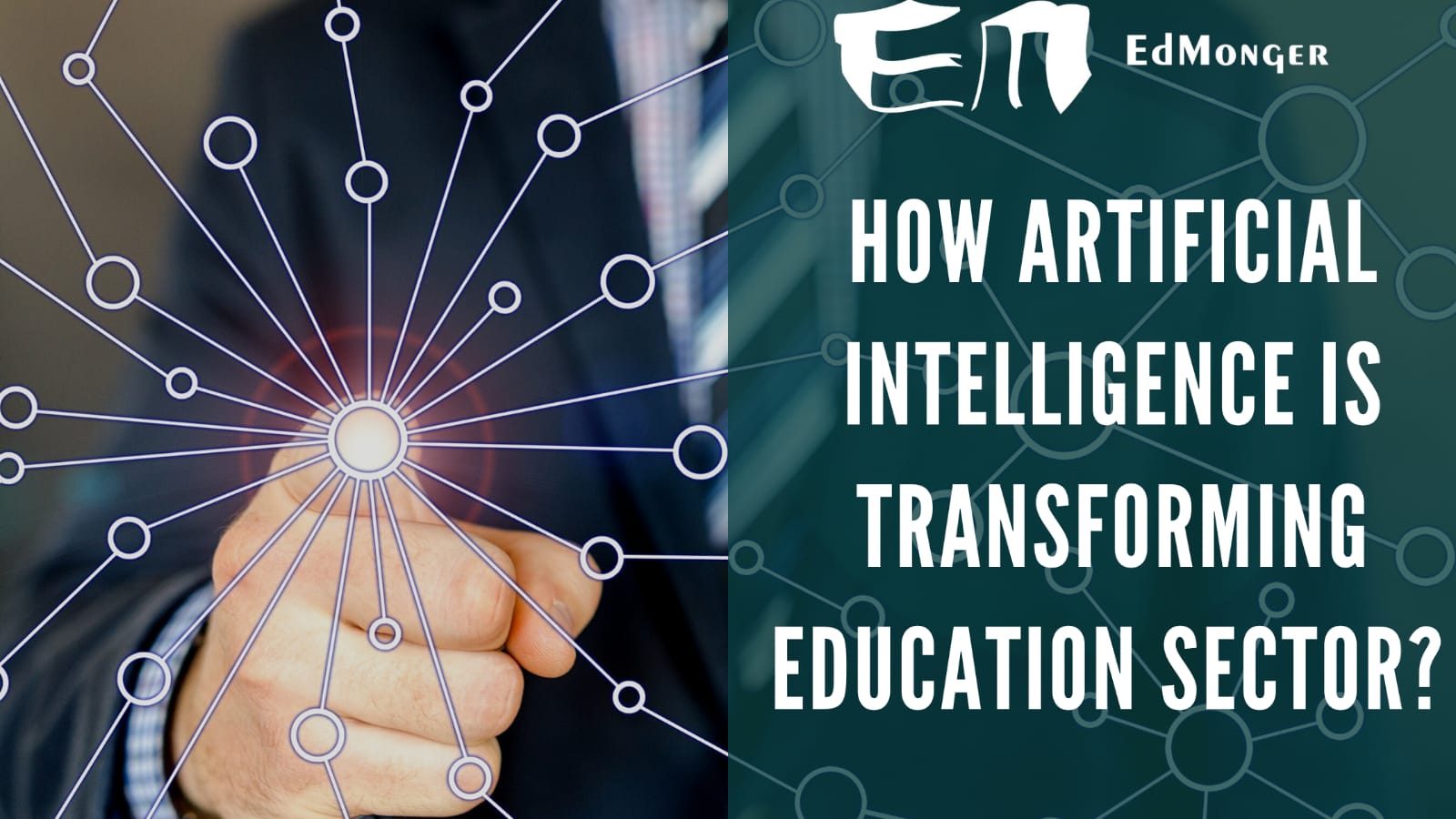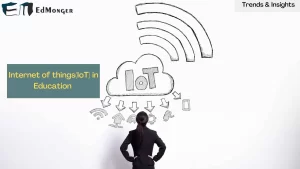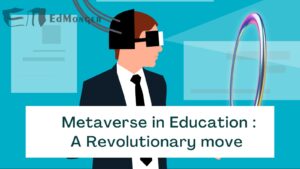Artificial Intelligence (AI) and machine learning (ML) are significant forces behind the innovation and growth of every sector. These technologies will undoubtedly play a big role in any sector’s progress in the upcoming future.
Every industry should adopt technology, given how quickly it is developing. The education industry is also not an exception to this.
According to eLearning Industries, 47% of learning management products in the future will be AI-enabled. Although the EdTech industry has been aware of AI-powered solutions for some time, acceptance has been gradual.
The Pandemic altered the environment and made teachers heavily reliant on technology for online learning.
You must have also noticed how the Pandemic affected children at home, making it difficult to get all of them to school. Technology made it possible for this to happen. Every youngster may now pursue online learning while at home, thanks to AI. Any teacher can instruct kids while seated at home. And since then, it has made several advancements as well.
Online education has gotten simpler due to the numerous AI solutions that have emerged on the market.
The role of artificial intelligence in education is expected to increase convenience, productivity, and efficiency while bringing various other advantages to the field. In this article, I have compiled a list of 10 ultimate roles of Artificial Intelligence in education that bring about tremendous changes in the online education sector.
Roles of Artificial Intelligence in Education
Education Software can be modified as per the demands of the students.
Increased degrees of tailored learning is one of the most significant ways artificial intelligence will affect education, from kindergarten through graduate school.
This is possible thanks to an increasing number of adaptive learning games, applications, and tools.
These programs are made to meet the needs of the students, emphasizing particular subjects and restating concepts they are unfamiliar with. Additionally, they let students work at their own pace. All these things together increase the efficiency of the students.
Students of various skill levels can learn together in one classroom using this form of machine-assisted instruction. And when necessary, teachers provide support to students while they know.
Tutors can assist students with the help of AI.
Tutors can undoubtedly do certain things that robots cannot. AI enables tutors to explain challenging concepts straightforwardly. In online learning, teachers can teach students with the help of diagrams and charts. Besides, Students can get basic arithmetic and writing assistance from some artificial intelligence-based tutoring systems.
These programs are helpful for teaching kids fundamental abilities, but they are not the best for encouraging students to think critically or creatively. Teachers in the actual world still need to facilitate this. This shouldn’t, however, prevent AI instructors from eventually being able to complete these jobs.
Artificial Intelligence is altering the way students engage with information.
We are often unaware of how artificial intelligence (AI) technologies influence the information we see regularly. Based on location, Google modifies search results. E.g., Products are recommended by Amazon based on previous purchases, and Siri changes to fit your wants and requirements. And whenever a brand creates a web advertisement, your buying choices and interests are almost always considered.
These AI systems alter how we interact with information in our personal and professional lives. Similarly, suppose a student search for information related to his subject, Google’s AI system will show him related results when he searches it again and follows this. In that case, future students’ experiences conducting research and locating information will probably differ considerably from current students.
AI enables Automating fundamental educational tasks like Grading.
Grading lengthy lectures is one of the laborious tasks in college, no matter if TAs share the work among them. Grading is always one of the teachers’ primary concerns, especially in lower grades. AI makes everything more accessible by enabling the automation of fundamental educational tasks.
AI gives teachers more time to interact with students, assist them in getting ready for class, and focus on their professional development.
Even though it will never fully replace human Grading, AI is getting close. Today, practically all forms of multiple-choice and fill-in-the-blank assessments can be graded automatically by teachers.
Soon, it might be able to grade student writing automatically. And teachers can give their complete time to teaching and assisting students for better results.
Educational institutions and students can benefit from the feedback provided by AI-driven programs.
With the use of AI, instructors and students may design courses that are tailored to their specific needs.
Additionally, it can provide them with information on how well the course was received.
Numerous institutions, especially those that provide online education, employ AI systems to monitor student development and notify instructors of any issues.
These AI systems can help teachers by showing them the areas where they can improve themselves, where they can enhance any student’s learning, or how to handle a particular subject effectively.
These AI tools even suggest courses for the students as per their requirements, likes and dislikes. And nowadays, various organizations or universities are focusing on creating AI tools that help their students select their subjects based on their strengths and weaknesses.
AI-powered chatbots can provide 24*7 assistance.
AI provides teachers and students with a wealth of knowledge and enhances the role of online learning. Students can use AI bots at any time of day to get assistance with any subject.
Every time a student had a question, it was consistently observed that they would approach the teacher in the classroom; however, if the teacher were not present, the student would have to wait.
But students now have a lot of assistance thanks to the introduction of AI chatbots. Many AI-powered chatbots are created for educational purposes. They are helpful as student assistants and can respond immediately to students’ inquiries. Students don’t have to wait for the lecturer to enter their office or classroom.
AI enables students to choose their place of learning, time of learning, and way of learning.
Although significant changes are still decades away, artificial intelligence can fundamentally alter nearly all of the assumptions we make about education.
With AI software and support, students can continue their online learning from their favourite location anytime. In some circumstances, these applications might even replace traditional classroom learning.
That day is not far when students can access a greater variety of services as the programs mature and their creators acquire more information.
Final Thoughts
Human learning and machine learning share many similarities. Because of this, artificial intelligence in the edtech industry has become more and more popular.
AI in online learning plays a huge role and brought a boom in the market for kids, adults, tutors, educational institutions, and corporates. Systems built on AI are capable of processing a lot of data. And that data enables students and teachers to enhance online learning without going anywhere.
What’s your take on this? Share in the comments.




